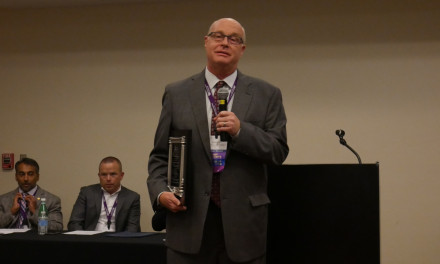
End of Session Report- 2021

The 2021 spring session began in January 2021. This General Assembly started with the election of two new legislative leaders. The House has elected Speaker Emanuel “Chris” Welch to be the new Speaker of the House. Speaker Welch is the first black Speaker in Illinois history. Minority Leader Jim Durkin was re-elected to serve as House Minority Leader for the Republican caucus. In the Senate, President Don Harmon was re-elected as to serve as the Senate President. Also, Leader Dan McConchie was elected as the new Senate Minority Leader for the Republican caucus.
Due to the COVID-19 pandemic, the 2021 session operated in a fully remote virtual format, including committee hearings. Throughout the session, the ICS legislative team monitored and participated in committees via live video. We also held Zoom meetings and phone calls with legislators and staff to communicate our policy positions.
The session was scheduled to adjourn on May 31. After working very long days over the Memorial Weekend and late into the morning hours of June 1, legislators realized the session would not adjourn on time. The legislature is working on a comprehensive energy bill that could not be completed during the normal session timeframe. Therefore, they did not officially adjourn on May 31.
The Senate then returned on June 15 and the House on June 16 to discuss the remaining items for the legislative session. While these issues, did not impact the chiropractic profession we always monitor these session days closely in case an issue would arise. . The legislature did not finish their agenda items on those two days. They are anticipated to return sometime this summer.
The legislature scheduled a veto session (brief end-of-year session) for October 19-21 and October 26-28.
The ICS participated in and monitored several pieces of legislation that significantly impact the chiropractic profession.
Chiropractic Services Included in the Medicaid Program
During the 2021 session, the ICS introduced legislation, HB 346 (Gabel), that would provide coverage for chiropractic services under the Medicaid program. This legislation has been a top priority for the association for the past several years. We talked with legislators and staff throughout the session to communicate the need for Medicaid patients to be able to access chiropractic care. We stressed the importance of patients being able to choose a provider of their choice and have access to non-pharmacological healthcare. The legislation was ultimately included in the Medicaid omnibus bill (SB 2294) at the end of the session.
SB 2294 (Gillespie/Harris, G.) has passed both chambers unanimously and has been signed into law by the Governor. It is now Public Act 102-0043. For more information, please read our detailed article on the passage of this important piece of legislation by clicking here.
State Budget
At the end of May, the legislature passed a $42 billion budget. The budget includes funding for a variety of services such as education, human services, and funding to pay down the bill backlog. Funding for the Medicaid program to provide coverage of chiropractic services has been included in the state budget.
The Governor issued an amendatory veto (a veto of certain portions) of the state budget, because the dates as to when the budget would become effective were incorrect in the original bill . The legislature made the corrections while they were in session in June. The state budget is now law and will be fully in effect on July 1, 2021.
Telehealth
The COVID-19 pandemic significantly enhanced the use of telehealth in the State and across the nation. Early in the pandemic, Governor Pritzker signed an executive order that required insurance companies to reimburse providers the same amounts for in-person visits as for telehealth visits. During the 2020 Spring Session and the lame duck session, health care providers and insurance companies tried to reach an agreement to codify some of the executive order telehealth provisions, but an agreement could not be reached during those sessions.
Therefore, during the 2021 Session, several pieces of legislation were filed and legislative hearings were held, which the ICS monitored closely. Near the end of the session, healthcare providers and the insurance companies came to an agreement to make changes in telehealth more permanent.
HB 3308 (Jones/Harris III), as amended, requires insurance companies to pay for telehealth visits when they are clinically appropriate and medically necessary, prohibits insurance companies from requiring patients to use telehealth, and allows patients to access the telehealth provider of their choice. The ICS supported the agreement.
HB 3308, as amended, passed both chambers unanimously and awaits action from the Governor.
Medical Licensing Board and Medical Disciplinary Board Merge – Existing Chiropractic Positions are Preserved
At the very beginning of the 2020 legislative session, the Illinois Department of Financial and Professional Regulation (IDFPR) introduced legislation that would merge the Medical Licensing Board and the Medical Disciplinary Board into one Medical Board. These two boards make recommendations to the IDFPR regarding the disciplinary action and licensing issues for physicians, including DCs, licensed under the Medical Practice Act. IDFPR initiated the bill because it was having difficulty reaching quorum for the board meetings. The bill was stalled in the 2020 session because of the COVID-19 pandemic.
The ICS legislative team worked with IDFPR throughout 2020 to address our concerns in the legislation. In 2021, IDFPR reintroduced the legislation, with our requested changes. The Medical Disciplinary Board and the Medical Licensing Board will become one, named the “Medical Board.” This will be a 17-member board, two of which are chiropractic physicians. The Board will make recommendations regarding licensing and disciplinary action for individuals licensed under the Medical Practice Act. The ICS supported the legislation throughout the 2021 session.
HB 806 (Mah/Jones III), as amended, is a large licensing omnibus bill that includes the merger of the two boards. HB 806 (Mah/Jones III), as amended, passed both chambers and has been signed by the Governor. It is now P.A. 102-0020.
Medical Practice Act (MPA) Sunset — Extension
Licensing acts are required to be renewed periodically by the legislature. In previous years, the Medical Practice Act (the licensing Act for chiropractic physicians, medical doctors, and doctors of osteopathic medicine) was allowed at most a two-year extension. Therefore, every two years legislation would have to be filed, reviewed, and passed to extend the MPA. This legislative session, the MPA was granted a 5-year extension, the longest in many years. Therefore, the MPA will not need to be renewed again until December 31, 2026.
The ICS supported the 5-year extension of the MPA.
Insurance Recoupment Demand Time Limit Reduced from 18 to 12 Months
In 2011, the ICS initiated and passed legislation that, for the first time, limited the time frame as to when insurance companies could make recoupment demands from providers. The law prohibits insurance companies from requesting or withholding from future payments recoupment demands 18 months or more after the original payment on the claim was made.
This session, SB 1974 (Fine/Morgan) was introduced by the National Association of Social Workers-Illinois, to change the timeframe from 18 months to 12 months. The ICS supported the legislation. Therefore, insurance companies would be prohibited from requesting or withholding from future payments recoupment demands 12 months or more after the original payment of the claim was made.
Once signed by the Governor, the legislation will become effective January 1, 2022.
SB 1974 (Fine/Morgan) passed both chambers and now awaits action from the Governor.
Prior Authorization of Insurance Coverage – Requires Review by Clinical Peer
Healthcare providers must expend enormous amounts of time and resources dealing with insurance pre-approval requirements. HB 711 (Harris, G./Holmes) was an Illinois State Medical Society (ISMS) initiative that would change the prior authorization process in Illinois.
Initially, the ICS had drafting concerns with the legislation. We wanted to ensure that adverse decisions against chiropractic physicians would be reviewed only by their professional peers. ICS worked with ISMS to come to an agreement on this issue.
In cases where a request for prior authorization of coverage is denied in whole or in part, HB 711, as amended, allows physicians to have adverse determinations and appeals reviewed by physicians of a similar specialty and experience. The bill makes several other changes to the prior authorization process such as requiring healthcare providers to post the clinical review, establishes timelines for when insurers must respond to prior authorization claims, and establishes requirement for who can review appeals.
HB 711, as amended, passed both chambers and now awaits action from the Governor.
Alzheimer’s and Dementia Continuing Medical Education Training Requirement
This session SB 677 (Villivalam/Willis) was filed to require Alzheimer’s and dementia training for health care providers. Beginning with the 2023 renewal cycle, health care providers will be required to complete a one-hour training requirement on the diagnosis, treatment, and care of individuals with Alzheimer’s disease and other dementias.
Health care providers who provide health care services and have direct patient interactions to adult patients who are over the age of 26 will be required to complete the training. This training requirement applies to chiropractic physicians.
The ICS monitored this legislation throughout the legislative session. SB 677 (Villivalam/Willis) passed the legislature and awaits action from the Governor.
Once the legislation become law, IDFPR will write rules to outline the implementation of the legislation. The ICS will provide more information on the training requirement and how to complete the training as it becomes available.
Implicit Bias Continuing Medical Education Training Requirement
The legislature has been very focused on addressing racial and healthcare disparities. Early in the 2021 session, the legislature passed the healthcare package that was an initiative of the Illinois Legislative Black Caucus. HB 158 (Lilly/Hunter) covered several items to address racial healthcare disparities including doula funding, establishes licensure for community health care workers, and a moratorium on hospital closures. The ICS monitored this legislation very closely.
Another component of the legislation is a one-hour implicit bias training component. Healthcare providers, including chiropractic physicians, will be required to take a one-hour training on implicit bias for their license renewal.
HB 158 (Lilly/Hunter) has been signed into law as P.A. 102-0004.
IDFPR will be issuing rules that will outline the implementation of the legislation. Once IDFPR issues the rules, the ICS will provide more information to our members about the requirements and how to complete the training.
Change to Sexual Harassment Prevention Training Requirement
Currently, sexual harassment prevention training is required yearly by the Illinois Department of Human Rights (IDHR) and is also required for license renewal by the IDFPR. Currently, the IDHR training cannot be used to meet the license renewal requirement, which resulted in physicians needing to take two versions of the training.
SB 1079 (Bush/Cassidy) was introduced this spring to allow the sexual harassment prevention training required by the Illinois Department of Human Rights to also meet the requirement for license renewal. The legislation passed both chambers and awaits action from the Governor.
Once the legislation is law, IDFPR has indicated to the ICS that rules will be filed to adjust for this change. We will provide our members with more information when it becomes available.
Non-Compete and Non-Solicitation Agreement Changes
Non-compete clauses (that limit an individual’s right to work within a certain area for a certain time following departure from a business) and non-solicitation clauses (limiting the right to solicit clients) are commonly used in workplace contracts, including in chiropractic offices. Following courts’ reluctance to enforce these provisions, legislation was filed this Spring to completely ban non-compete clauses. The business community had strong objections to the complete ban of non-compete clauses. Therefore, the business community negotiated a bill that would limit the use of non-compete and non-solicitation clauses.
SB 673 (Hunter/Burke, K.), as amended, provides limitations as to when a non-compete clause and a non-solicitation clause can be used. The bill passed both chambers and now awaits action from the Governor.
Once the bill becomes law, we will provide our members with more information as to how this may affect contracts in your office.
Dry Needling Training Requirements for Athletic Trainers and Occupational Therapists
Recently, there have been conversations about whether or not athletic trainers and occupational therapists could perform dry needling within their scope. Therefore, this session legislation was passed to allow them the ability to do dry needling, provided they met certain training criteria. The training is synchronized with the training requirements for physical therapists. The ICS monitored this legislation during the session.
SB 1078 (Jones/Mah) created the following outline:
- 50 hours of instructional courses that include but are not limited to studies in the musculoskeletal and neuromuscular system, the anatomical basis of pain mechanisms, chronic pain, and refereed pain, myofascial trigger point theory, and universal precautions
- 30 hours of didactic course work specific to dry needling
- Successful complete of at least 54 practicum hours in dry needling course work
- Completion of at least 200 supervised patient treatment sessions
- Successful completion of a competency exam
SB 1078 passed both chambers unanimously and awaits action from the Governor.
IDFPR Must Post Rehearing Information Online
SB 1790 (Murphy, L./Hurley) requires the Illinois Department of Financial and Professional Regulation (IDFPR) to put information on its website about the process for requesting a rehearing and the process for restoring a license under the Medical Practice Act after the successful completion of a term of probation, suspension, or revocation of a license.
The ICS monitored this legislation so we could inform our members that this information will be available on the IDFPR website. SB 1790 (Murphy, L./Hurley) passed both chambers unanimously and awaits action from the Governor.
Expedited Licenses for Military Spouses
HB 2776 (Greenwood/Belt) will require IDFPR to issue licenses for spouses of military members within 30 days, provided that all information for licensure is completed and has been provided to the Department. Currently, the Department has 60 days to issue the licenses. The ICS monitored this legislation throughout the session.
HB 2776 (Greenwood/Belt) passed both chambers and awaits action from the Governor.
New Legislative Maps Passed
Every ten years the U.S. Census Bureau conducts a new census. The Illinois constitution requires the legislature to redraw the legislative districts by June 30 following the census. This process is called “redistricting.” Therefore, this year the legislature was tasked with passing legislation that would establish the new legislative districts for the 2022 election cycle.
The census data is still not completely available. The federal government is expected to provide that data to the states sometime in August/September. To meet the June 30 deadline, the legislature used the American Community Survey (ACS) data to draw the new map. Also, throughout April and May, they held public hearings on the process of redistricting. At the end of May, the new maps were released to the public.
The newly drawn maps passed strictly on party lines. Lawsuits have been filed for various reasons about the legality of the new maps.
2022 Election Cycle
The 2022 Election Cycle will begin next year. In previous election cycles, the State of Illinois held the primary in March. This legislative session legislation was passed to move the primary to June 28. The general election will be held on November 8, 2022.

















